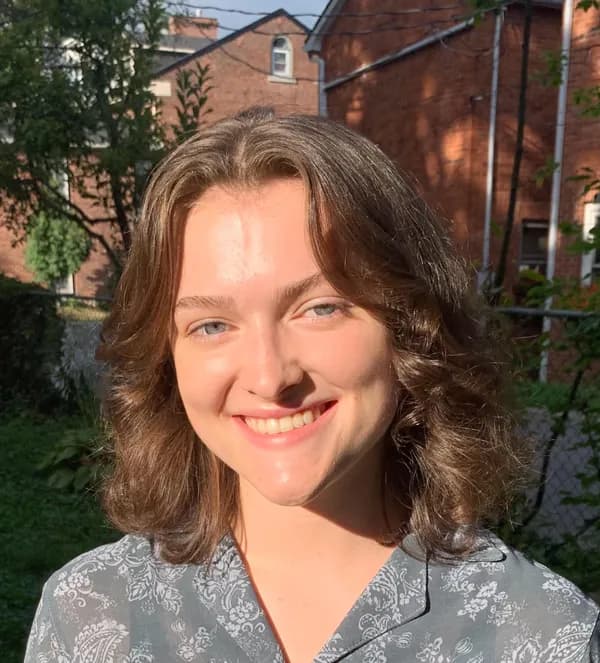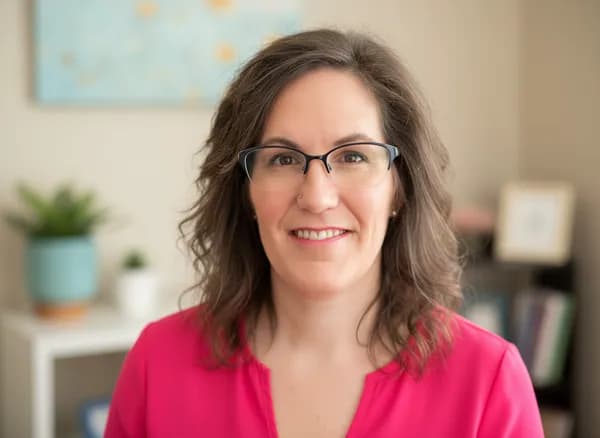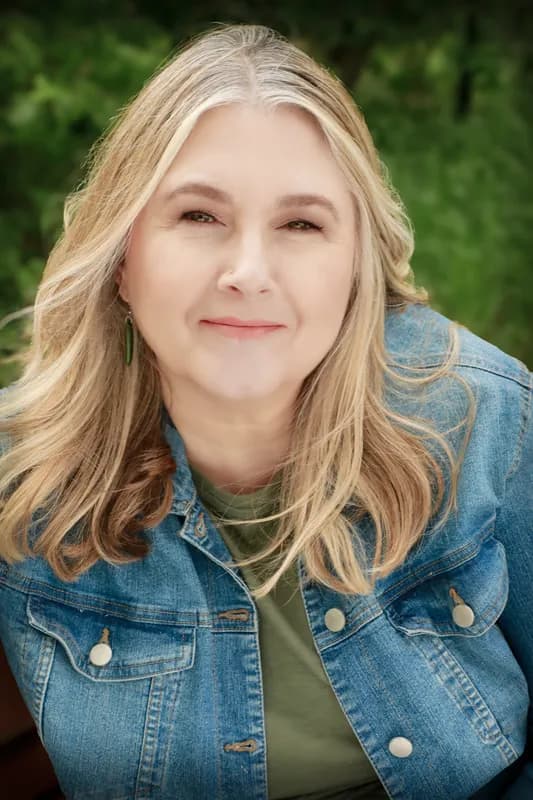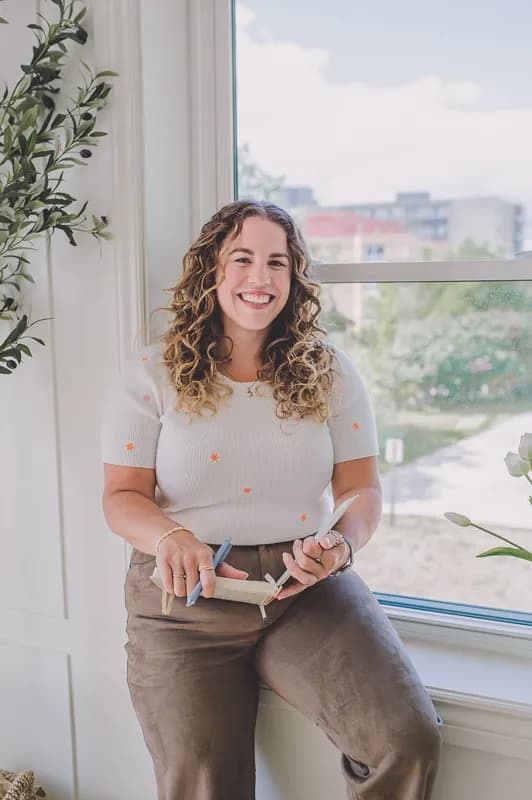Therapy for substance use and misuse

You may not be sure you have a problem, but you are starting to question your relationship with substances. Maybe you use more than you planned or in ways that create stress in your life. You might be using to cope, mixing substances, or finding it harder to cut back than you expected. What began as recreational may now feel more regular. You do not need to be in crisis to seek support. Noticing concerning patterns early is often the smartest step. Therapy can help you understand your use, explore what changes feel right, and find healthier ways to meet your needs.
Understanding problematic substance use
The spectrum of use
Substance use falls on a continuum. Some people use occasionally with no concerns. Others experience significant dependence and clear consequences. Many fall somewhere in between, using regularly and noticing problems even if they would not describe themselves as addicted. You may be using in ways that do not fit your values, affect your daily functioning, or create risk. Noticing these patterns early gives you the chance to make changes before the impact grows.
Signs that use has become misuse
Misuse happens when substance use begins to cause harm, even without dependence. This can include taking prescription medications differently than prescribed, mixing substances in unsafe ways, using alone, or driving after using. You may rely on substances to cope with stress, spend more than you can afford, or hide your use from others. Continuing despite warning signs from your body or the people around you is another clue. You do not need to reach a crisis point before reaching out for support.
The reality of substance use problems
In Canada, about twenty one percent of people aged fifteen and older experience a substance use disorder at some point in their life. In any given year, roughly six percent meet the criteria for a disorder.Canadian Alcohol and Drugs Survey, 2019. Alcohol, cannabis, opioids, and stimulants are among the most commonly misused substances, and many people use more than one at a time, which increases risks and complicates treatment.CCSA costs and harms report. Addressing concerning patterns early leads to better outcomes and a healthier path forward.
Substance use in Canada
Sources:Health Canada CADS,CCSA & CSUCH,CIHI.
Different patterns of problematic use
Some people use one primary substance regularly. Others use different substances depending on availability or desired effect. Polysubstance use, where multiple substances are used together or in succession, is increasingly common and particularly risky. You might be prescribed medication for legitimate medical reasons but have developed dependence. You could be self-medicating anxiety, depression, trauma, or chronic pain. Some people binge use on weekends while abstaining during the week. Others use daily in controlled amounts but can't stop. Your pattern might include periods of abstinence followed by heavy use. Whatever your pattern, if you're concerned about it, that concern deserves attention.
The impact of problematic substance use
Health consequences
Substances affect the body in different ways. Stimulants strain the heart. Opioids slow breathing and can cause overdose. Sedatives affect memory and coordination. Mixing substances increases risk in unpredictable ways. Over time, use can damage organs, weaken immunity, and affect brain development in younger people. Many people also experience worsening anxiety, low mood, or paranoia. Tolerance and withdrawal can develop, making use feel harder to control.
Relationships and responsibilities
Substance use can change how you show up for the people in your life. You may become less present or more reactive. Loved ones may feel worried, hurt, or exhausted by broken promises. Friendships can shift, and work or school may suffer from missed days or difficulty concentrating. Spending on substances can create financial stress, and some people face legal issues linked to use.
Identity and purpose
When substance use takes centre stage, other parts of your life can fade. Activities you once enjoyed may lose their appeal and goals can feel far away. You may plan your day around using or hiding your use, and the person you hoped to become may feel out of reach. Therapy can help you explore whether your use fits your values and supports you in moving toward a life that feels meaningful.
How therapy addresses substance use
Why working with a specialist helps
A therapist experienced in substance use understands that people have different goals and are at different stages of readiness for change. They won't force an agenda or insist you're "an addict" if you're not ready for that label. They'll help you honestly assess your use, understand what function it serves, identify the costs and benefits, and explore options. They know how to work with ambivalence, support harm reduction when abstinence isn't your goal, address underlying issues, and help you develop skills for whatever changes you choose to make. They also understand when medical support for withdrawal might be necessary.
What treatment looks like
Therapy begins with understanding your specific pattern: what you're using, how much, how often, in what contexts, and what it does for you. Your therapist will explore the history of your use, what you've tried before, and what's bringing you to therapy now. Together you'll identify whether your goal is abstinence, reduction, or changing specific aspects of your use. Treatment addresses both the substance use itself and what drives it: stress, trauma, social pressure, mental health issues, or life circumstances. You'll develop practical strategies while also addressing the deeper reasons you've been using.
Evidence-based treatment approaches
Motivational interviewing
This collaborative approach helps you explore your own motivations for change without judgment or pressure. Your therapist helps you examine the pros and cons of your substance use, resolve ambivalence, and strengthen your internal motivation to change. MI is particularly effective in early stages when you're uncertain about what you want to do. Research consistently shows it increases engagement in treatment and improves outcomes.
Cognitive behavioural therapy
CBT helps you identify triggers, challenge thoughts that lead to use, and develop coping skills for managing cravings and high-risk situations. You'll learn to recognize the patterns that precede use and interrupt them with alternative behaviours. CBT also addresses the beliefs and expectations you have about substances and teaches problem-solving skills for dealing with life stressors without using. This approach has strong evidence for treating various substance use disorders.
Harm reduction strategies
If you're not ready or able to stop using completely, harm reduction focuses on making your use safer. This might include using alone less often, having naloxone available for opioid use, not mixing certain substances, setting limits on amounts or frequency, testing substances for contaminants, or using in safer environments. Harm reduction meets you where you are while keeping you as safe as possible. It's not enabling; it's pragmatic healthcare that reduces deaths and serious harm while leaving the door open for further change when you're ready.
Treating co-occurring conditions
Many people use substances to manage untreated or undertreated mental health conditions, trauma, chronic pain, or ADHD. Effective treatment addresses both the substance use and underlying issues simultaneously. Your therapist might integrate trauma work, teach skills for managing anxiety or depression, or coordinate with your doctor about medication that addresses root causes without creating new dependence. Treating only the substance use while ignoring what drives it rarely leads to lasting change.
Contingency management and behavioural approaches
These approaches use positive reinforcement to encourage reduced substance use or abstinence. You might work with your therapist to set up rewards for meeting goals, develop new routines that don't involve substances, or build positive activities and relationships that compete with substance use. The focus is on creating a life worth protecting by making healthy choices more rewarding than continued use.
Your path forward
Assessment and goal setting
Your therapist will conduct a thorough but non-judgmental assessment of your substance use patterns, health, mental health, social situation, and treatment history. Together you'll identify your goals, which might include complete abstinence, reduced use, changing how you use, or exploring whether use is actually a problem. Your therapist will assess whether medical support for withdrawal is needed and screen for situations requiring immediate safety planning. This honest assessment provides the foundation for everything that follows.
Active change phase
Regular sessions focus on working toward your goals, whether that's stopping use, reducing it, or using more safely. You'll learn specific skills, address triggers, develop coping strategies, and build a support network. Your therapist helps you navigate challenges, celebrate progress, learn from setbacks, and adjust your plan as needed. This phase requires active participation between sessions: practicing new skills, tracking your use, and implementing changes in real life. The length of this phase varies based on your goals and progress.
Maintenance and relapse prevention
Once you've achieved initial goals and demonstrated consistent progress, therapy shifts to maintaining changes and preventing relapse. You'll develop a detailed plan for high-risk situations, identify early warning signs of potential relapse, and strengthen the skills and supports that keep you on track. Sessions may space out as you demonstrate sustained change. The goal is for you to internalize these skills so you can maintain your progress independently, with the option of returning to therapy if needed.
Find a therapist for substance use and misuse
Choosing the right therapist matters. Each province in Canada has its own regulations, which is why working with a recognized professional can make a real difference in your care. Stellocare takes the uncertainty out of the process by listing only verified therapists you can trust.
The right therapist for you
No therapists found with these specialties in Ontario.
Try selecting a different province.Resources and strategies
Canadian substance use support
ConnexOntario helplines (Ontario)
Free, confidential 24/7 service providing information on substance use, mental health, and gambling supports across Ontario. Available in over 170 languages. Call 1-866-531-2600 or search online. Get help now.
Canadian Centre on Substance Use and Addiction (CCSA)
National, federally funded organization offering research, guidelines, fact sheets, and tools about alcohol, cannabis, opioids, and other substances. Supports individuals, families, and practitioners. Visit CCSA.
National Overdose Response Service (NORS)
A real Canadian phone-based supervised consumption service. If you use substances alone, call 1-888-688-6677 to have someone stay on the line and call emergency services if needed. Operates Canada-wide, 24/7. Learn about NORS.
Peer support groups
Real, widely available peer-led recovery programs in Canada. Narcotics Anonymous (NA) and Alcoholics Anonymous (AA) follow 12-step models. SMART Recovery uses cognitive and behavioural tools. LifeRing offers secular, peer-led meetings. NA, AA, SMART Recovery.
Harm reduction services
Local public health units and community organizations across Canada provide supervised consumption sites, drug-checking services, naloxone kits, and safer-use supplies. Free nasal naloxone kits are available at most pharmacies in every province. Where to get naloxone.
Steps you can take now
Understanding your use
- Track honestly for two weeks: record what you use, how much, when, where, with whom, and what you felt before and after. Patterns become clearer when you actually document them rather than relying on memory.
- Identify your triggers: notice what consistently precedes use. Stress, boredom, certain people, specific times of day, emotional states, or environmental cues all influence substance use patterns.
- Examine the function: ask yourself what need the substance meets. Relaxation? Social confidence? Emotional escape? Energy? Understanding this helps you find alternatives.
Reducing harm while you decide
- Never use alone: if you're using opioids or other substances with overdose risk, ensure someone else is present or call NORS for phone-based monitoring.
- Start low, go slow: if you're going to use, start with smaller amounts than usual, especially with unfamiliar substances or after a period of abstinence when tolerance is lower.
- Avoid dangerous combinations: mixing depressants (alcohol, opioids, benzodiazepines) is particularly risky. Research interactions between any substances you're combining.
- Have naloxone available: if you or people around you use opioids, get free naloxone kits from pharmacies and learn how to use them.
Making changes
- Set specific, measurable goals: instead of "use less," try "use only on weekends" or "limit to X amount per occasion." Vague goals are hard to track and achieve.
- Change your environment: remove substances and paraphernalia from your home, avoid places where you typically use, and limit contact with people who encourage use during your change effort.
- Build incompatible activities: schedule things that compete with substance use. Join a sports league, volunteer, take evening classes, or commit to activities that require being clearheaded.
- Develop alternative coping: when the urge to use arises, have a plan: call someone, exercise, journal, use a grounding technique, or engage in a hobby that absorbs your attention.
I Am Sober tracks substance-free days and provides community support. Nomo offers similar tracking with motivational features. Insight Timer has meditations for managing cravings and stress. Consider apps that align with your specific goals, whether abstinence or moderation.
Questions about addressing substance use
How do I know if I need to stop completely or just cut back
This depends on the substance, any signs of dependence, how much harm you are experiencing, and your goals. Some situations call for full abstinence, while others allow for reduction. Your therapist can help you look at this honestly. If you try cutting back and it does not work, that can be a sign that abstinence may be safer.
Can I still use some substances if I stop others
Some people can stop their main problem substance and use others responsibly. Others find that any substance triggers cravings or leads back to the same patterns. Talk openly with your therapist about whether this approach supports your goals or whether full abstinence feels safer.
What if I need the substance for a medical condition
If you rely on medication for a health issue, work closely with both your doctor and your therapist. There may be safer alternatives or ways to manage the medication more carefully. Do not stop prescribed medication on your own. Instead, be honest with your healthcare team so they can support you.
Will I need to go to rehab
Not always. Many people make meaningful changes through outpatient therapy and community support. Residential treatment may be helpful if you have severe dependence, need medical supervision for withdrawal, have tried outpatient care without success, or lack a stable environment. Your therapist can help you decide the right level of care.
What happens if I slip up
Slips are common, especially early on. What matters is what you do next. Reach out to your therapist, look at what led to the slip, adjust your plan, and keep moving forward. A setback does not erase your progress. It gives you information that helps strengthen your recovery.
Related concerns
References
- Health Canada. Canadian Alcohol and Drugs Survey (CADS): Summary of results for 2019. Retrieved from https://www.canada.ca/en/health-canada/services/canadian-alcohol-drugs-survey/2019-summary.html
- Canadian Centre on Substance Use and Addiction. Canadian substance use costs and harms (2015-2017). Retrieved from https://www.ccsa.ca/canadian-substance-use-costs-and-harms-2015-2017
- McHugh, R. K., Hearon, B. A., & Otto, M. W. (2010). Cognitive behavioral therapy for substance use disorders. Psychiatric Clinics of North America, 33(3), 511-525. Retrieved from https://www.ncbi.nlm.nih.gov/pmc/articles/PMC2897895/
- Canadian Centre on Substance Use and Addiction. Home page. Retrieved from https://www.ccsa.ca/
- ConnexOntario. Health services information. Retrieved from https://www.connexontario.ca/
- National Overdose Response Service. Retrieved from https://www.nors.ca/
- Narcotics Anonymous. Welcome to NA. Retrieved from https://na.org/
- SMART Recovery. Science-based addiction recovery support. Retrieved from https://www.smartrecovery.org/
About Stellocare
Stellocare is a Canadian platform where you can find the best fit therapist for you. Search the right thperaists now by asking our AI, browsing our list, or finding our social workers for personal referral.

Arin Clarke
Canadian Certified Counsellor

Stacy Kirkbride
Registered Psychotherapist (ON)

Natalie Bender
Registered Psychotherapist (Qualifying) (ON)

Justin Appler
Registered Psychotherapist (Qualifying) (ON)

Victoria Jacobs
Registered Psychotherapist (ON)

Vrushalee Nachar
Registered Psychotherapist (ON)

Victoria Brassard-Monahan
Registered Psychotherapist (Qualifying) (ON)

Hardeep Ajmani
Registered Social Worker (ON)

Jinny Hong
Registered Psychologist (ON)

Shannon Gallagher
Canadian Certified Counsellor

Jeromy Deleff
Canadian Certified Counsellor

Pantea Ahmadian
Registered Psychotherapist (Qualifying) (ON)

Lesley Evans
Counselling Therapist (AB)

Florence Wong
Registered Social Worker (BC)

Renée Dangerfield-Allen
Registered Social Worker (AB)

Rae Jardine
Registered Social Service Worker (ON)

Shauna Cheney
Registered Social Worker (BC)

Shani Ellis-Alman
Registered Social Worker (ON)

Amelia Henriquez
Registered Psychotherapist (Qualifying) (ON)

Chelsea Jackson
Registered Psychotherapist (ON)

Arin Clarke
Canadian Certified Counsellor

Stacy Kirkbride
Registered Psychotherapist (ON)

Natalie Bender
Registered Psychotherapist (Qualifying) (ON)

Justin Appler
Registered Psychotherapist (Qualifying) (ON)

Victoria Jacobs
Registered Psychotherapist (ON)

Vrushalee Nachar
Registered Psychotherapist (ON)

Victoria Brassard-Monahan
Registered Psychotherapist (Qualifying) (ON)

Hardeep Ajmani
Registered Social Worker (ON)

Jinny Hong
Registered Psychologist (ON)

Shannon Gallagher
Canadian Certified Counsellor

Jeromy Deleff
Canadian Certified Counsellor

Pantea Ahmadian
Registered Psychotherapist (Qualifying) (ON)

Lesley Evans
Counselling Therapist (AB)

Florence Wong
Registered Social Worker (BC)

Renée Dangerfield-Allen
Registered Social Worker (AB)

Rae Jardine
Registered Social Service Worker (ON)

Shauna Cheney
Registered Social Worker (BC)

Shani Ellis-Alman
Registered Social Worker (ON)

Amelia Henriquez
Registered Psychotherapist (Qualifying) (ON)

Chelsea Jackson
Registered Psychotherapist (ON)

